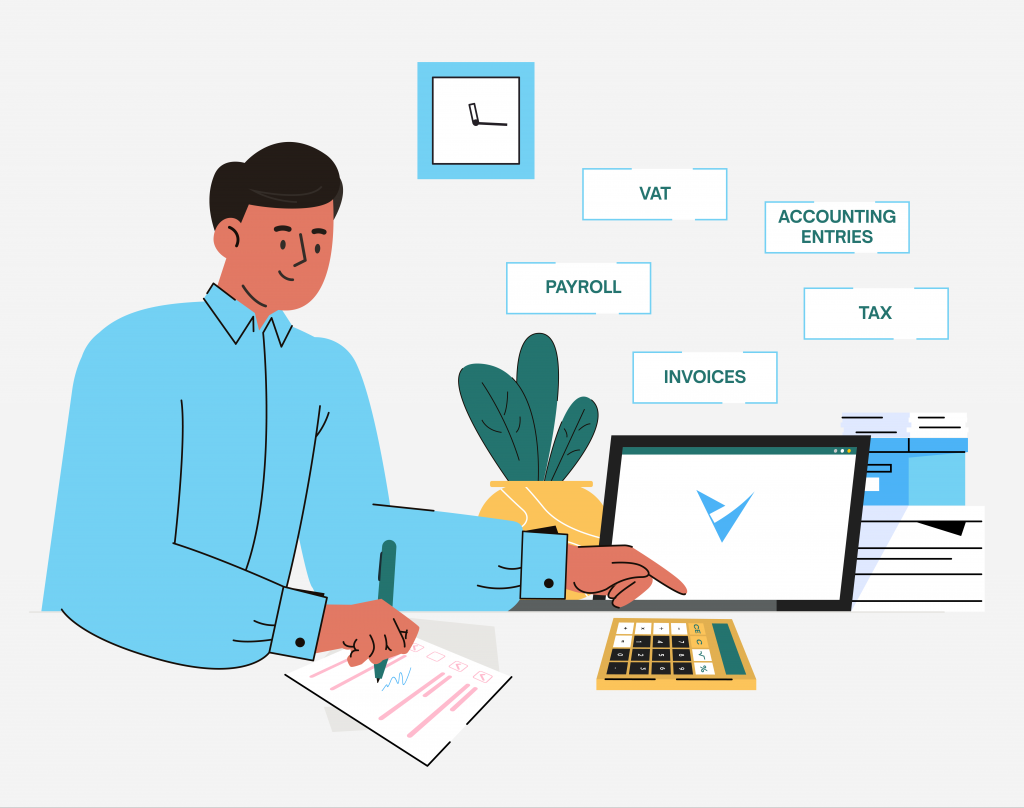Bookkeeper vs Accountant vs CFO
It is very common to find start-ups filling their strategic finance vacancy with a bookkeeper or an accountant profile. This might work when you are at a very early stage and require someone to set-up and manage your company’s statutory obligations but, having taken care of compliance, you may be unaware of the gap in business support you are still left with. When hiring, is your job specification tailored to attract the right type of finance professional? Now is the time to understand how each finance job role works.
Discover in the following article, the difference between the three main roles in finance and make the most of your finance team (one minute reading time).
This article will help you to build the right finance team for your needs, by understanding what each profile really means. As well as onboarding the right person to bring value to your business, you can avoid making the mistake of not partnering with the right finance profile to scale up and grow your start-up.
What does a bookkeeper do?

As the role describes, this person “keeps your books”. Books mean historic records, i.e. bookkeepers record day-to-day transactions as per local accounting policy requirements. These tasks include:
- Processing invoices, receipts, payments
- Processing and maintaining your payroll system
- Filing your payroll-related taxes and insurances
- Bank and cash reconciliation
- Reconciling your balance sheet and income statement
- Drafting your financial statements
- Calculating and filing VAT returns
What does an accountant do?
Accountants supervise, control and analyse the work produced by the bookkeeper, to provide a holistic outlook for a business. They also advise the company’s founders to take the most suitable or efficient tax & accounting-related decisions.
They can perform all the tasks listed above under the bookkeeper’s role, as well as the responsibilities below:
- Prepare the official financial statement in compliance with the local accounting rules and legislation
- Prepare the management accounts for founders, board and investors
- Prepare your R&D tax credit
- Forecasting and budgeting – basic to intermediary level
- Manage your treasury
- Support with bank relationships
- Tax planning and management
- Audit
- Prepare and file your Corporate Income Tax statements
In the UK, it is very common that this role is covered by a Certified Chartered Accountant (equivalent of CPA in the US).

What does a CFO or a Business Finance Partner do?
What does a CFO or a Business Finance Partner do?

A person in this role will not only supervise your bookkeepers or accountants (regardless of these two roles being in-house or, outsourced through an accounting & payroll firm) but, this person will also coordinate with your Sales, Marketing, and Product team leaders to work in the best interest of the company’s founders, CEO and investors for value creation.
This is a role, whether fractional CFO or full-time, that leverages his or her past experience scaling startups, SMEs or larger enterprises from a business operations and strategic point of view. Tasks can vary from preparing your pitch deck for fundraising at your early stage, to supporting you in defining your sales-to-cash process or growth plan. A CFO has already gone through the above two roles in their career and has transitioned from senior finance management to executive corporate finance. This person, therefore, has a full insight view of both sides, the transactional and the commercial side.
Value creation means that your economic unit makes sense and that your expansion and growth are done with sound financial planning and adequate risk control. In order to grow, you need to have a scalable team that leverages on scalable systems. Expanding your business international means that your collaborators and teamwork will have real experience operating in such environment.
As you can see, the CFO or Business Finance Partner (as we prefer to call it) is more than a bookkeeper or an accountant – two roles which just represent the tip of the iceberg. The finance role you need is an experienced profile who has operated businesses during their career on the product, pricing and strategic side rather than only limited to reporting, audit and filing.
Concerned about capital burn? Your financial planning and forecasting? Will you be able to afford new hirings, new ventures or expansion? And if so… how to expand? How to scale-up? What systems and processes do you need to design to keep your sales-to-cash and financials efficient?